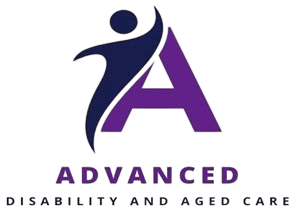Speech therapy is essential for patients with communication, swallowing, and cognitive-linguistic disorders, particularly individuals with disabilities and the elderly.
In Advanced Disability and Aged Care, speech therapy services aim to resolve clinical challenges while restoring self-efficacy, independence, and improving the quality of life. The centre uses evidence-based methods to personalise therapies, thus empowering clients to engage more meaningfully with their family and friends.
Understanding the Scope of Speech Therapy
The scope of speech-language therapy goes beyond addressing issues like stuttering or mispronunciations, as it comprises evaluation and management of disorders of speech, language, voice, fluency, cognitive functions, and swallowing. These disorders may be caused by strokes, traumatic brain injuries, developmental lagging, some progressive conditions such as Parkinson’s and Alzheimer’s diseases, or even congenital disorders like autism spectrum disorder or Down syndrome.
Advanced Disability and Aged Care employs speech pathologists who work closely with clients and their families, as well as within multidisciplinary professional circles, to develop integrated and comprehensive care plans. Emphasis is placed not only on rehabilitation but also proactive and ongoing self-maintenance, especially in chronic progressive conditions.
Speech Therapy for Adults with Disabilities
Individuals with physical, intellectual, or developmental disabilities face chronic difficulties with communication which, at best, restrict their ability to express needs, and participate socially, educationally, and vocationally. In some cases, speech limitations may arise from conditions such as cerebral palsy, head injuries, or certain genetic disorders. Others may have difficulty articulating or understanding words processed at the higher levels of language.
At Advanced Disability and Aged Care, therapy sessions make use of AAC (Augmentative and Alternative Communication) systems such as communication boards and speech-generating devices tailored to meet the needs of non-verbal clients. Advanced Disability and Aged Care also trains families and caregivers to foster consistent communication support throughout different contexts, which enhances the impact of participation by both formal and informal caregivers.
Addressing verbal communication inadequacies as a multi-step process motivates patients to work towards specific goals, framing such goals within tangible actions that promote improved self-efficacy while easing navigation through the environment. A stroke survivor with aphasia may practice relearning common phrases, often aided by visual prompts. The journey towards gaining even small incremental alterations significantly enhances the individual’s perception of self and social interactions.
Supporting the Ageing Population
Physiological processes that naturally occur with aging may disrupt an individual’s ability to speak or swallow. In addition, older adults are more prone to vascular diseases that alter the communicative functions of the brain such as dementia or Parkinson’s disease. These disabilities, when unattended, may psychosocially result in withdrawal, frustration, or depression.
Advanced Disability and Aged Care provide speech therapy and do comprehensive assessments to identify the loss of language skills, speech and voice changes, and dysphagia (swallowing disorders). Appropriate methods are implemented to ensure optimal preservation of abilities. In patients with mild cognitive dysfunction, therapy may consist of memory supports and structured dialogues tailored to preserve functional communication.
Equally crucial is the therapy that targets swallowing. Difficulty swallowing not only affects nutrition and hydration but also puts the person at risk of aspiration pneumonia, which is one of the most common causes of hospital admission in the elderly. Therapists evaluate the swallowing processes and recommend strict control of certain diets, posture during mealtime, and specific exercises to ease and promote safety during meals.
Person-Centred and Goal-Oriented Practice
At Advanced Disability and Aged Care, the provision of speech therapy services is anchored on a person-centred approach. Therapists start from a core concern of the client, be it effective communication with grandchildren, returning to part-time work, or engaging in community activities. Goals are defined collaboratively with the individual and their support system, and these goals are both realistic and measurable.
Progress is assessed on a regular basis using a combination of qualitative feedback, standardized tools, and goal attainment scaling. There will be some individuals who achieve significant improvement with regard to example of speech or vocabulary; others may respond better to environmental changes and the application of assistive devices. Regardless of the approach used, the focus remains on enhancing participation and independence in daily living activities.
The Role of Family and Caregivers
Successful speech therapy goes beyond the clinic. Family, aides, and caregivers are crucial in applying techniques learned in therapy. At Advanced Disability and Aged Care, therapists provide instruction, take-home materials, and guidance to ensure that communication objectives are embedded within daily activities.
Such collaboration works toward achieving common understanding regarding the person’s skills and difficulties, thus increasing understanding and reducing miscommunication. It also facilitates social interaction and emotional connection which are necessary for mental well-being.
Commitment to Inclusive and Ethical Practice
Advanced Disability and Aged Care upholds comprehensive clinical practice, ethics, culture sensitive care, and therapy was tailored to the client’s needs. Therapists honor their clients’ multicultural and multilingual backgrounds by modifying therapy goals to align with their worldviews. In addition, they remain dedicated to emerging interventions in speech pathology to provide relevant, evolving care.
This organization prioritizes the longstanding quality of services offered and strengthens the satisfaction of clients which subsequently aids the community. The long-standing reputation of Advanced Disability and Aged Care as a responsive and attentive provider of rehabilitative and supportive health services.
Conclusion
Speech therapy is an important aspect of treatment for individuals with disabilities and the elderly. It improves more than just one’s ability to talk; it restores dignity, improves relationships, and enhances one’s quality of life. At Advanced Disability and Aged Care, the therapy journey is individualised, dignified, empowering, and tailored to the client’s needs. People can enable movement toward engagement with the world around them and with the help of the right conversation support.
